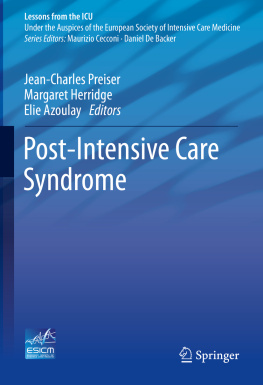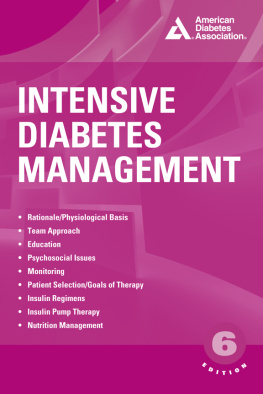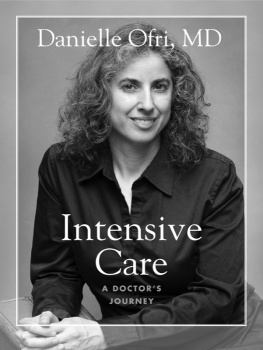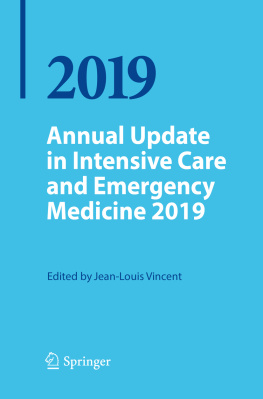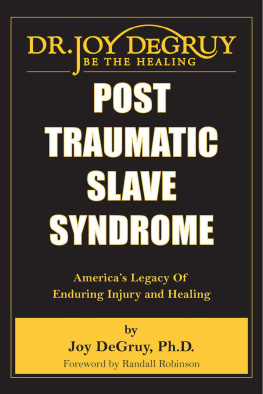Jean-Charles Preiser - Post-Intensive Care Syndrome
Here you can read online Jean-Charles Preiser - Post-Intensive Care Syndrome full text of the book (entire story) in english for free. Download pdf and epub, get meaning, cover and reviews about this ebook. year: 2020, publisher: Springer International Publishing, genre: Romance novel. Description of the work, (preface) as well as reviews are available. Best literature library LitArk.com created for fans of good reading and offers a wide selection of genres:
Romance novel
Science fiction
Adventure
Detective
Science
History
Home and family
Prose
Art
Politics
Computer
Non-fiction
Religion
Business
Children
Humor
Choose a favorite category and find really read worthwhile books. Enjoy immersion in the world of imagination, feel the emotions of the characters or learn something new for yourself, make an fascinating discovery.
- Book:Post-Intensive Care Syndrome
- Author:
- Publisher:Springer International Publishing
- Genre:
- Year:2020
- Rating:5 / 5
- Favourites:Add to favourites
- Your mark:
- 100
- 1
- 2
- 3
- 4
- 5
Post-Intensive Care Syndrome: summary, description and annotation
We offer to read an annotation, description, summary or preface (depends on what the author of the book "Post-Intensive Care Syndrome" wrote himself). If you haven't found the necessary information about the book — write in the comments, we will try to find it.
Post-Intensive Care Syndrome — read online for free the complete book (whole text) full work
Below is the text of the book, divided by pages. System saving the place of the last page read, allows you to conveniently read the book "Post-Intensive Care Syndrome" online for free, without having to search again every time where you left off. Put a bookmark, and you can go to the page where you finished reading at any time.
Font size:
Interval:
Bookmark:
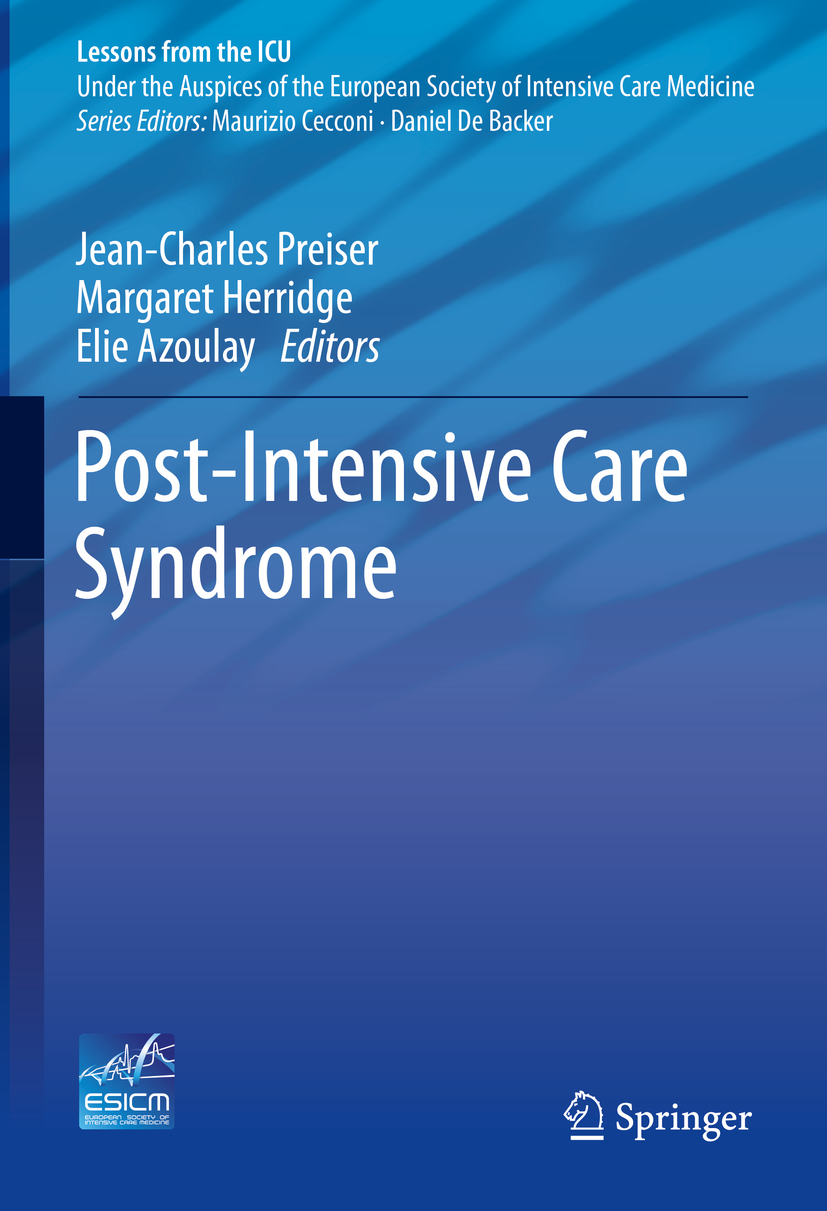
Lessons from the ICU is a Book Series published by Springer under the auspices of the European Society of Intensive Care Medicine (ESICM). The aim of the Series is to provide focused and state-of-the-art reviews of central topics in Intensive Care. Ultimately, its mission is to transfer the latest knowledge to the bedside in order to improve patient outcomes. Accordingly, the ESICM has also developed Lessons from the ICU with the vision or providing the best resources for everyone working in Intensive Care.
Each volume presents a comprehensive review of topical issues in Intensive Care. The volumes are intended to cover the majority of aspects that intensive care professionals are likely to encounter in the course of their career. Books offer an excellent guide for residents who are new to the ICU, and for allied professionals, senior consultants as well as nurses and allied healthcare professionals.
The chapters are organized in a way that allows the reader to quickly familiarize or reacquaint themselves with the pathophysiological background before moving on to diagnosis and treatment. Each chapter includes a list of Take Home Messages, as well as practical examples that apply theoretical knowledge in real clinical scenarios. Each volume in the Series is edited by international Key Opinion Leaders in Intensive Care, and each chapter is written by experts in the field.
In summary, this Series represents a valuable contribution to fill the gap in the current Intensive Care literature by providing top-quality literature reviews that can be easily digested and used at the bedside to improve patient outcomes.
More information about this series at http://www.springer.com/series/15582

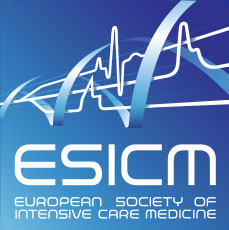
This Springer imprint is published by the registered company Springer Nature Switzerland AG
The registered company address is: Gewerbestrasse 11, 6330 Cham, Switzerland
Until relatively recently, our role as intensivists focused solely on managing patients within the intensive care unit (ICU), with little (if any) thought about the patients post-ICU discharge course. We were happy if the patient survived their critical illness and reached a stage where they could be discharged! In recent years, however, we have begun to be increasingly aware of the long-term outcomes of ICU patients the physical, cognitive, and/or psychological problems that are encountered by many patients for months and even years after their ICU discharge. The psychological impact of critical illness on family members is also a concern, with many close relatives suffering symptoms of anxiety, posttraumatic stress, and depression for many years after the discharge of their loved one.
Importantly, many of these post-ICU complaints could be reduced with improved patient management during the ICU admission. Less sedation, more careful use of medications known to impact long-term outcomes such as corticosteroids, earlier mobilization, improved nutritional support, better communication, and involvement of family members are some examples of approaches that can help limit the development and severity of post-ICU complications and improve post-ICU quality of life. As intensivists, we need to think not just about survival per se but also about the quality of that survival to reflect on how our interventions may impact the health and well-being of each patient and their family after discharge.
As the demand for intensive care increases and ICU mortality rates decreases, so the population of ICU survivors is also increasing, carrying with it an urgent need to heighten awareness of post-intensive care syndrome, improve our understanding of the underlying mechanisms and causes, and determine how best to prevent and treat these complications. This book, written by international experts in this field, is therefore an important and timely volume and of value for all intensivists as we strive to maximize long-term, quality-of-life outcomes for our patients and their families.
Font size:
Interval:
Bookmark:
Similar books «Post-Intensive Care Syndrome»
Look at similar books to Post-Intensive Care Syndrome. We have selected literature similar in name and meaning in the hope of providing readers with more options to find new, interesting, not yet read works.
Discussion, reviews of the book Post-Intensive Care Syndrome and just readers' own opinions. Leave your comments, write what you think about the work, its meaning or the main characters. Specify what exactly you liked and what you didn't like, and why you think so.

